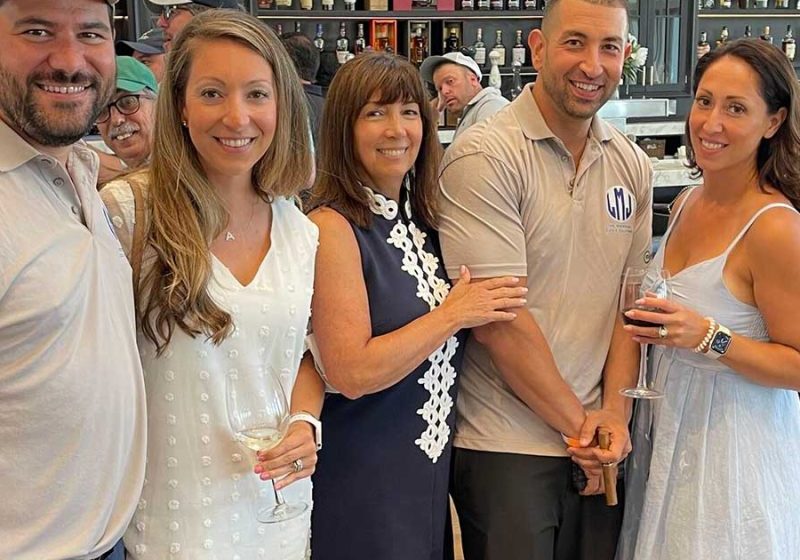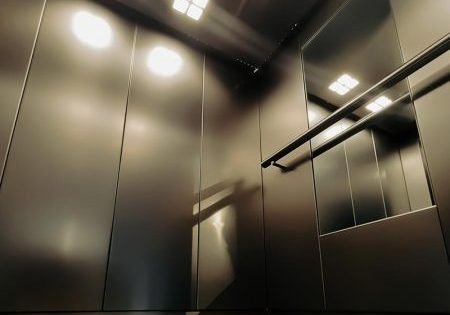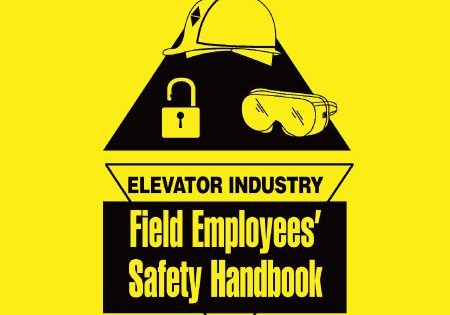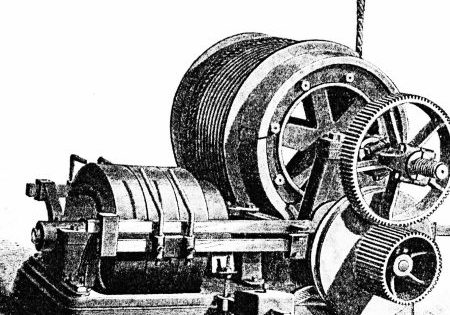RISE: The Untapped Potential of Women in the Elevator Industry, Part Two
Oct 6, 2022

Part Two: Women’s Voices
For this report, we carried out a targeted focus group interview with a range of female elevator mechanics and apprentices from metropolitan and non-city areas. We have chosen to withhold their names to allow them the confidence to openly share their experiences.
What Women Enjoy About the Job
While perceived as a typically male career, being an elevator mechanic appeals to many women who have a keen interest in electronics, engineering and problem-solving. They describe the job as demanding but rewarding in many ways, not least financially. One woman shares how money was, in fact, the first thing that appealed to her about the job. “I can earn the same in four years as what would take me 12 years working in another sector, like utilities, for example,” she explained. Her career started by exploring the job as an apprentice to see if she would like it, and she found several areas where her skills and aptitude were a great fit.
Most of the women describe how the actual hands-on experience is something they enjoy. Troubleshooting equipment, solving problems methodically and learning about different types of elevators offer a sense of accomplishment. They often feel like they can bring a fresh set of eyes or a different perspective to a problem. “The best part of the job is when you troubleshoot something and you get things up and running again,” one mechanic explained. “That’s the best feeling in the world.”
However, one experience all women interviewed shared was that of rarely receiving credit for their contributions. While this is something that is typical for the apprentice experience, regardless of gender, the women described a sense of it being more common as a female. “I love when someone actually gives you credit for figuring out a problem,” one apprentice said. “Some guys worry that it makes them look bad if they let others know a female came up with the solution.”
Gender Friction
For any workplace where one gender is dominant, there will inevitably be some level of apprehension when the status quo is disrupted. While this can sometimes simply be chalked up to a general aversion to change, there are some specific scenarios that seem to play out when it comes to women in mechanical roles.
While perceived as a typically male career, the role as an elevator mechanic does appeal to many women who have a keen interest in electronics, engineering and problem-solving.
One of the women described this situation from the male perspective, recognizing the challenge that her colleagues face. “When you’re working with a woman in the pit, you’re physically close. It’s easy for a man to feel uncomfortable. They may worry about being accused of something inappropriate, or they perhaps just don’t know how to behave around a female coworker.” One apprentice observed how some men have been accused of sexual harassment, and others are terrified of that happening to them. She said:
“It makes them feel like they can’t speak how they normally would when they’re around other men. They don’t want to feel inhibited on the job, always watching their mouth, worrying about what they can and can’t say. It’s easier for them if there are no females around.”
This experience is echoed by the other female mechanics, who often find themselves reassuring their male colleagues that they don’t have to change just because a woman is present. “As long as they don’t make mean comments about me, they can joke all they want and use whatever language they want,” one apprentice said.
The one element that often helps these women is time. The longer they spend in their role or working with a particular set of people, the easier things become. “It often takes a while to get to the point where someone feels relaxed around you,” one woman explained, continuing:
“They want to feel you out first, get to know you, figure you out. Often it takes other guys to tell each other about you, explaining that you’re cool. They’ll let each other know that here’s someone who shows up to work and gets the job done. It helps to get to know people who will talk nicely about you behind your back.”
This need for advocates and supporters in the workplace quickly became a solid thread that ran through all the comments made. One woman shared how she today, after more than 15 years in the job, has been able to establish herself in her role. She knows her customers and coworkers feel confident they can rely on her to do a good job.
Prejudice
Many women have experienced a deep-rooted culture of prejudice from colleagues, as well as customers. They have all had situations of being treated as unwelcome or unfit for the job at hand. One apprentice described how a customer discouraged her from climbing on top of an elevator car, as it was “no place for a girl,” putting himself in a potentially unsafe situation before allowing her to do the job she was trained to do.
“To get anywhere close to the same level of trust and confidence that a male mechanic gets, you have to work 10 times harder,” one mechanic said, adding:
“You have to constantly prove yourself. Often, a guy can walk in and automatically be part of the team. As a woman, you walk in and you are part of a small crew here, a small crew there, with whoever the guys are that are willing to teach you something. You often feel like you’re the odd one out.”
Another challenge the women raise is that of the difficulty to get the same experience and the same level of on-the-job training as their male counterparts. “Often you just don’t get the same ‘hands-on’ experience,” one mechanic explained, continuing:
“I was working alongside a male apprentice who would get instructed to do things, while I was blanked. I thought to myself, what do they think I’m here for – just to hold the flashlight? But you have to be really careful about how you respond to situations like that. You don’t want to be seen as difficult and someone who just complains.”
That fear of being labeled as a problem colleague is one that is well recognized by all the respondents. They have all had situations where they have chosen to hold back their criticism, not wanting to rock the boat. “When I speak up for myself, I’m seen as ‘difficult to work with,’ which is unfair,” one mechanic chimed in. “This is my livelihood, and I need to learn. I need my male colleagues to teach me the same stuff they teach a male apprentice. People need to get over the fact that I’m a woman doing this job.”
One apprentice summed the situation up succinctly:
“I’m not here just to fill the quota of race, age or gender. I’m here to learn a trade. I don’t want to be two years into a job and still be the one holding the flashlight, watching other people learn. Let me learn it, then let me do it.”
Safety on the Job
Safety is a key issue for all interviewees, and they highlight the importance of apprentices learning good safety practices from their colleagues. According to one mechanic:
“A lot of people who have been doing the job a long time get comfortable. It’s easy to get complacent when you do the same thing day in, day out, but we have to remember that safety is such a huge part of what we do. We’re in the safety industry. We all have to be on our toes. If it takes a moment longer to do the safety checks properly, it can be the difference between us coming home safely at the end of the day or not coming home at all.”
I’m not here just to fill the quota of race, age or gender. I’m here to learn a trade. I don’t want to be two years into a job and still be the one holding the flashlight, watching other people learn. Let me learn it, then let me do it.
— An elevator mechanic apprentice
However, safety on the job sometimes takes on an additional meaning for these mechanics. Several of the women interviewed have experienced varying levels of uncomfortable, sexualized situations on the job. One of the mechanics described being sexually assaulted by a superintendent when using the bathroom, and having to call the police. While her employer supported her, the offender accused her of making up the story. Other women have experienced men asking for hugs and physical contact on job sites, and were made to feel uncomfortable when they rejected those advances.
While situations like these should never have to be tolerated, they help highlight the importance of an anti-harassment policy, with a clear reporting structure and a defined process for enforcement.
The Solution: Allies and Role Models
On the flipside of these challenges, several of the women have had the opportunity to work with mechanics who were proud to have a woman on the team. They describe these men as their allies, teachers and mentors who simply want their colleagues to succeed and be good mechanics. One woman explained:
“If a company wants to invest in a woman to help ensure she becomes a mechanic, they need to pair her with a good mechanic who is willing to teach her and focus on her. And once she becomes a mechanic, she will, in turn, become a role model for other women.”
“I know from experience, and from watching other women in blue-collar jobs, that a woman typically puts in 10 times more effort,” another mechanic chimed in. “Why wouldn’t I want to work with someone who’s that motivated?”
The interviewees all agree that a role model doesn’t have to be a mechanic. It can be an office employee or a leader in a different part of the business. There are many champions, male and female, who help pave the way for more women.
How To Get More Women Into the Industry and Keep Them
In the U.S., there are many routes into working with elevator mechanics. However, all interviewees agree that there’s not enough information available about jobs in the industry. “Young people don’t know about this as a career or that they can work on elevators,” one mechanic said. “Companies have to target high schools and start highlighting the route to these jobs. Not everybody is cut out for college, and here’s a great alternative.” They also agree that there’s not enough in the way of vocational training and hands-on skills training. With such a wide scope of fields in engineering, not all young people realize all the options available to them when they start exploring future jobs.
However, getting in the door is just the first step. The next challenge is to support new industry joiners and help them thrive. While all interviewees agree that the work environment can be demanding at times, they don’t want negativity to push people right back out the door again.
One mechanic offered a piece of advice for other women looking to join the trade. “Just do it, but be prepared to apply yourself,” she said, adding:
“A lot of women assume it’s a hard job, but it’s really not hard if you have the right training and the right guidance from the mechanics who teach you. You have to know what to look for, how to read the controllers and how to work safely. My advice would always be to take the time to watch, listen and learn.”
Also read: Rise: The Untapped Potential of Women in the Elevator Industry
Get more of Elevator World. Sign up for our free e-newsletter.









